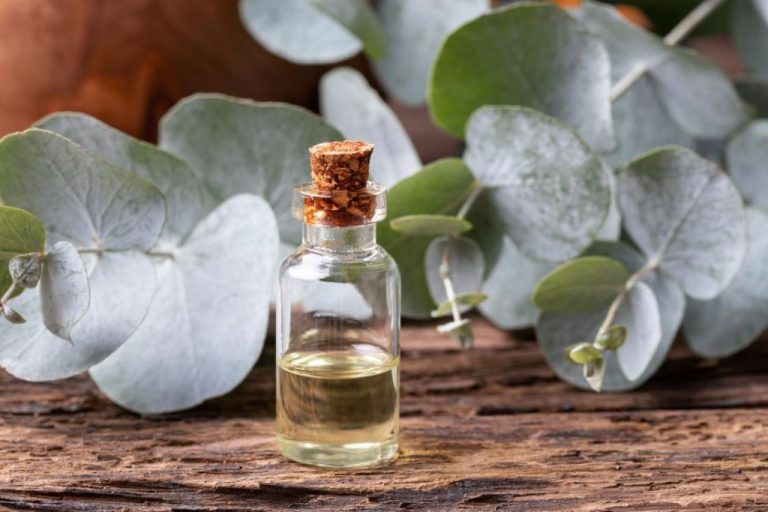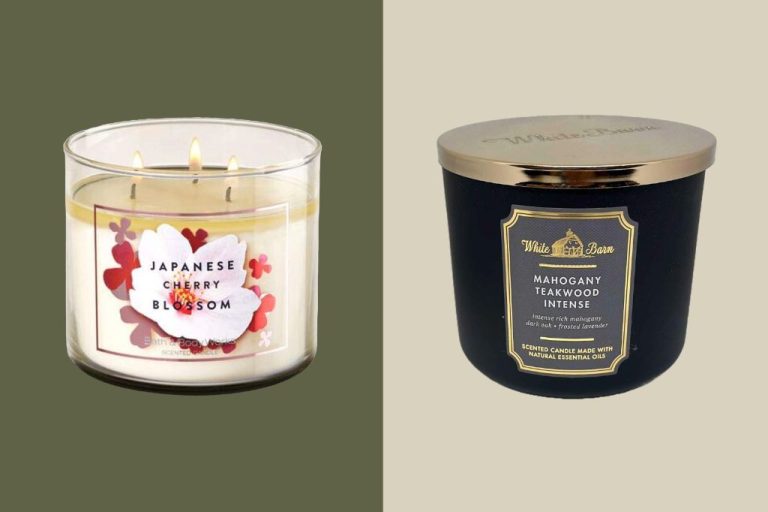What Does Eucalyptus Oil Repel?
Eucalyptus oil is a natural essential oil that comes from the leaves of Eucalyptus trees. It has a fresh, earthy, and camphoraceous aroma. According to Wikipedia, eucalyptus oil has a long history of wide application as a pharmaceutical, antiseptic, repellent, flavoring, fragrance, and industrial uses.
The history of using eucalyptus oil dates back to the 19th century. In the 1850s, Joseph Bosisto first commercially produced eucalyptus oil in Australia. Baron Ferdinand von Mueller, a botanist, discovered the oil could be used as an antiseptic. Eucalyptus oil became commonly used in pharmaceutical products and antiseptic soaps.
The main chemical components of eucalyptus oil are eucalyptol (also known as cineole) and alpha-terpineol. Eucalyptol comprises 70-90% of eucalyptus oil and gives it antiseptic properties. Alpha-terpineol comprises 5-15% and provides aroma.
Insects
Eucalyptus oil has been shown to be an effective insect repellent against various types of insects including mosquitoes, flies, ticks, cockroaches, and bed bugs. According to research published in the National Center for Biotechnology Information, eucalyptus oil at a concentration of 10% provided a repellency effect of 97.15% against the mosquito species Anopheles stephensi after 3 hours of exposure (https://www.ncbi.nlm.nih.gov/pmc/articles/PMC8643535/). The citronellal, citronellol, and citronellyl acetate compounds found in eucalyptus oil are particularly effective at repelling mosquitoes.
One study found that eucalyptus oil resulted in 100% mortality in houseflies within 6 hours of exposure (https://www.ncbi.nlm.nih.gov/pmc/articles/PMC8643535/). For cockroaches, eucalyptus oil disrupts their nervous system and acts as a fumigant. When used along baseboards and cracks where cockroaches hide, eucalyptus oil can help control infestations.
Research has shown that eucalyptus oil can repel ticks, including the blacklegged tick that spreads Lyme disease. A 2014 study found that eucalyptus oil repelled adult blacklegged ticks and inhibited movement by 92% after 5 minutes of exposure (https://www.ncbi.nlm.nih.gov/pmc/articles/PMC8643535/).
For bed bugs, studies have found that mixing eucalyptus oil with other essential oils like peppermint can effectively repel and even kill bed bugs when sprayed in infested areas (https://www.ncbi.nlm.nih.gov/pmc/articles/PMC8643535/). The oil likely works by penetrating the insect’s cuticle and acting as a neurotoxin.
Rodents
Eucalyptus oil has been shown to be an effective repellent against rodents like mice, rats, squirrels, and gophers. One study found that applying eucalyptus oil around the home reduced house rat activity by 80% (Singla, 2014). The strong aroma of the oil acts as a deterrent and helps prevent rodents from entering areas where it has been applied.
Eucalyptus oil can be used to make homemade repellents to keep mice, rats, and squirrels out of your home. Mixing the oil with water in a spray bottle and spraying baseboards, doorways, attics, garages, and other areas rodents may enter is an effective approach. The oil can also be soaked into cotton balls and placed strategically around the house.
For gophers and other outdoor rodents, eucalyptus oil can be poured or sprayed directly into burrow openings. As the oil seeps deeper into the burrow, it will deter rodents from returning. Be sure to reapply after heavy rains.
When using eucalyptus oil as a rodent repellent, proper application and reapplication are key for keeping rodents away. The oil provides a natural, non-toxic way to deter these common pests.
Cats and Dogs
Eucalyptus oil can be an effective repellent for cats and dogs when applied properly. The strong smell of eucalyptus is offensive and overpowering to many cats and dogs, causing them to avoid areas where eucalyptus oil has been applied. According to Emu Ridge, mixing eucalyptus oil with water and vinegar makes an effective DIY cat deterrent spray. The eucalyptus oil’s pungent odor drives cats away. Similarly, Nature’s Mace notes that the potent smell of eucalyptus oil can deter curious cats from yards, gardens, and other areas. For dogs, the strong scent triggers an instinct to avoid that area. Applying diluted eucalyptus oil around furniture, plants, and other areas you want to protect can repel both cats and dogs.
Snakes
Eucalyptus oil is commonly used as a natural snake repellent. When applied around areas where snakes may be present, the strong scent of eucalyptus oil can deter snakes from entering those spaces. According to The Organic Goat Lady, eucalyptus oil is one of the most effective essential oils for repelling snakes due to its potent aroma that snakes dislike.

Specifically, studies have shown that snakes have a strong aversion to the 1,8-cineole compound found in eucalyptus oil. This active compound overstimulates the snake’s sensory organs, making the area inhospitable for the snake. Applying eucalyptus oil around the perimeter of your home, yard, or garden can create a barrier that makes snakes less likely to enter.
For best results, dilute the eucalyptus oil with water at a 50:50 ratio in a spray bottle. Then spray the solution liberally around any areas where you want to deter snakes, such as under porches, along foundations, and near potential snake hiding spots. Reapply the spray after heavy rains. The strong scent should last for several weeks. Combining eucalyptus oil with other pungent oils like peppermint or lemongrass can make the repellent even more effective against snakes.
Eucalyptus oil provides a natural, non-toxic way to repel snakes without using harsh chemicals. When used properly and reapplied regularly, it can be an effective part of an integrated pest management strategy for keeping snakes away from homes and gardens.
Birds
Eucalyptus oil can be an effective bird repellent for certain species when used properly. According to https://aviancontrolinc.com/what-smell-do-birds-hate/, eucalyptus oil can be used in homemade sprays to repel some birds.
Mixing eucalyptus oil with other repellent ingredients like peppermint oil, lemon oil, and vinegar can create a spray that irritates birds’ senses and deters them from treated areas. The strong smell of eucalyptus can discourage birds like pigeons and geese from roosting or feeding.
However, the effects are often short-lived as the smell fades. Properly concentrating the spray and reapplying frequently is key for longer effectiveness. Eucalyptus oil sprays may repel birds initially but likely won’t work as a standalone long-term deterrent according to https://www.birdbgone.com/blog/what-smells-do-birds-hate/.
Deer
Eucalyptus oil is an effective natural deer repellent, especially for protecting gardens and landscaping. According to a new study published on Citrefine, eucalyptus oil contains citronella that serves as a powerful scent and natural barrier to deter deer for almost 5 hours (https://www.citrefine.com/new-deer-tick-study-news/). Deer have an acute sense of smell and dislike the strong aroma of eucalyptus oil. Applying eucalyptus oil around the perimeter of gardens creates an invisible fence that repels deer from entering.
There are several simple DIY recipes for homemade deer repellents using eucalyptus oil. A spray made with vinegar, eucalyptus oil and other essential oils like peppermint and rosemary can be an effective deterrent when sprayed on garden plants, fences and landscaping (https://www.bhg.com/gardening/pests/diy-deer-repellent/). The pungent smell of eucalyptus keeps deer away without harming plants. Eucalyptus oil bags can also be hung around gardens to repel deer.
According to A-Z Animals, the smell of eucalyptus is one of the top scents that deer hate and avoid (https://a-z-animals.com/blog/discover-smells-that-deer-absolutely-hate/). Using eucalyptus oil is a safe, natural way to keep deer from destroying gardens, flowers, trees and shrubs.
Mold and Mildew
Eucalyptus oil has some antifungal properties that can help inhibit the growth of mold and mildew. According to a study published on Mouldmen, eucalyptus oil demonstrates moderate antifungal activity against two common mold species – Ulocladium and Coprinellus. However, the antifungal effects were not strong enough to completely kill the mold.
Another source from Mould Cleaning Australia states that eucalyptus oil can effectively remove mold from non-porous surfaces like glass and stainless steel through its disinfecting properties. However, it does not penetrate porous materials enough to kill mold below the surface.
Overall, eucalyptus oil has limited ability to kill mold spores but can inhibit mold growth and remove surface mold from hard non-porous surfaces. It should not be solely relied upon to remediate mold issues. Proper moisture control, ventilation, and remediation techniques remain essential for mold prevention and elimination.
Antimicrobial Effects Against Bacteria and Viruses
Eucalyptus oil has been shown to have antimicrobial properties against various bacteria and viruses. According to research, eucalyptus oil contains compounds such as eucalyptol and alpha-terpineol that can disrupt bacterial cell membranes and inhibit viral replication. A 2021 review published in the National Library of Medicine found that eucalyptus oil demonstrates antiviral activity against influenza, herpes, and other viruses [1].
Another study published in the National Library of Medicine in 2023 showed that Eucalyptus globulus essential oil was able to inhibit the growth of MRSA bacteria. The antibacterial effects were enhanced when the oil was used in combination with antibiotics [2]. The antimicrobial properties are likely due to the presence of citronellal, citronellol, and other bioactive compounds in eucalyptus oil.
Overall, research indicates that eucalyptus oil can be an effective natural antiviral and antibacterial agent when used properly.
Conclusion
In summary, eucalyptus oil has been shown to be an effective natural repellent for a wide variety of pests. Its strong aroma can deter insects like mosquitoes, flies, and cockroaches from entering homes and gardens. The oil may also discourage rodents like mice and rats when applied along baseboards or other entry points.
For outdoor spaces, eucalyptus oil can drive away stray cats and dogs who dislike its potent smell. There is some evidence it may repel snakes, though more research is needed. Placing eucalyptus leaves or oil near nests and feeders can dissuade birds from congregating in an area. The oil’s scent is also known to be unappealing to deer and other wildlife that may damage gardens.
Inside the home, eucalyptus oil has antimicrobial properties that make it useful for warding off mold, mildew, bacteria, and viruses when used to clean countertops, appliances, and other surfaces. Diffusing the oil can purify indoor air as well.
With its multifaceted repellent abilities, eucalyptus oil is a versatile, natural option for keeping unwanted pests out of homes, gardens, and other environments. Further research into optimized usage techniques can help maximize these beneficial effects for users.




